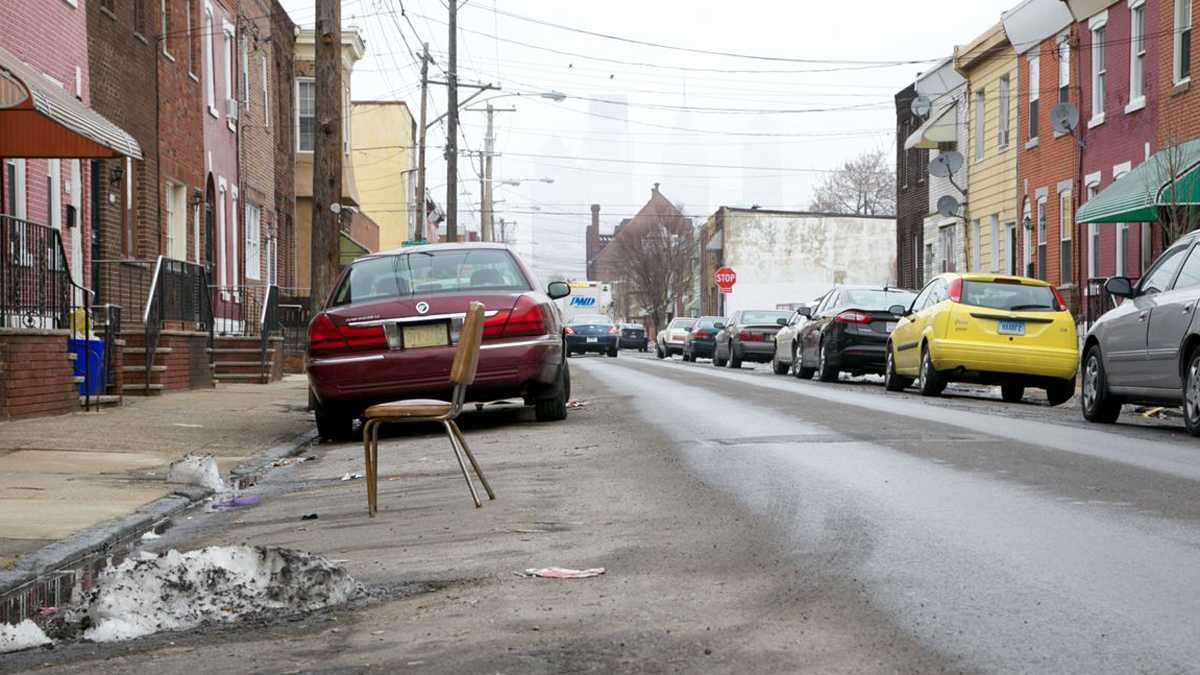How parking rules can destroy walkability

Cars are parked along a street in Philadelphia. (Nathaniel Hamilton/for NewsWorks)
The city of Ottawa says policies requiring developers to build a certain number of parking spots can have consequences for urban planning.
Having a car gives you a lot of freedom; you don’t have to wait for a bus or train to arrive, you get to stay warm or cool during extreme temperatures, you save time (unless there’s traffic, in which case all bets are off).
But once you get to your destination, you have to find somewhere to put that hunk of metal on wheels.
In some cities, that’s a toilsome task.
Most of us have had the experience of circling a square block for half an hour in the hopes of finding parking. Or finally finding a spot but then realizing that it’s teeny tiny and our parallel parking skills are not what they used to be.
These frustrations can lead people to demand more parking. In some cities, one solution is “parking minimums,” a requirement that developers build a certain number of parking spots, depending on variables like type of building, number of units and the type of district.
A lot of Pennsylvania cities have parking minimums, including Philadelphia, Allentown, Reading and Pittsburgh.
Well, in a 90-second PSA, Ottawa, Canada explains why that policy is outdated and can have disastrous consequences for urban planning.
The key point of the video, which we came across on CityLab, is that parking requirements limit developers’ ability to build dense, walkable communities. And when there are more parking spaces, more people drive their cars, leading to traffic.
The PSA also argues that parking requirements are expensive, making it impossible for some developers to build projects.
The city of Ottawa proposes eliminating the parking minimums. But it notes that doing so wouldn’t stop a developer from creating parking. That person just wouldn’t be required to.
Some Pennsylvania cities, including Pittsburgh, Harrisburg and Phoenixville, have gotten rid of parking minimums in certain neighborhoods. Pittsburgh also added requirements for bicycle parking.
Smart growth
The underlying theme here is “smart growth,” a planning approach that favors dense, walkable and bikeable communities over sprawl.
A lot of Pennsylvania cities are incorporating smart growth policies and looking to build denser communities, says Karin Morris, manager of the Office of Smart Growth at the Delaware Valley Regional Planning Commission, who we interviewed for an explainer. Lancaster, Pittsburgh’s East Liberty neighborhood, Lower Macungie Township, Dauphin County and Hershey have all been recognized for their policies.
One smart growth policy is transit-oriented development: allowing extra-dense development in areas near transit hubs, where people wouldn’t need a car. That could also cut down on the need for parking.
Planners hope that over the long term, smart growth policies will change society, leading fewer residents to buy cars. But in the short term, people still need somewhere to park.
WHYY is your source for fact-based, in-depth journalism and information. As a nonprofit organization, we rely on financial support from readers like you. Please give today.


